Incoloy Hex Head Bolts
A Ni-Cr alloy with very good high temperature stability
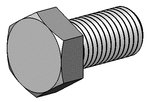 Good high temperature strength
Good high temperature strength- Oxidization and carburization resistant at high temperatures
- Good corrosion resistance, which increases with the various grades
- Incoloy hex head bolt features and benefits
- Download the Incoloy 800 datasheet and 825 datasheet
Not to be confused with Inconel, Incoloy hex head bolts are made of a nickel alloy which contains iron and a lower content of nickel. Incoloy is essentially a more economical option to Inconel, yet with more restricted corrosion resistance and temperature limits. Typically, Incoloy is an ideal material for long-term exposure in high temperature environments due to its oxidation, carburization and creep resistance. Incoloy is widely used for its resistance to seawater, brine, sour gas and high chloride environments at elevated temperatures, which make it a popular choice in the oil and gas and power industries.
Resources: Incoloy Torque Specs, Flange Dimensions, Flange Bolting Chart
Incoloy Fastener Types: Bolts, Nuts, Screws, Threaded Rods, Washers
Flange Types Available: Blind Flanges, Lap Joint Flanges, Slip On Flanges, Socket Weld Flanges, Threaded Flanges, Weld Neck Flanges
Incoloy Hex Head Bolt Features and Benefits
It is important to differentiate between a Incoloy hex head bolt and hex head cap screw. Often people assume they are the same, but they are actually very different fasteners in terms of how they are manufactured, as well as from an application perspectiv. Regardless of your choice, Incoloy hex heads offer strong, stable joints because of their large head service.
The Hex Comparison
Hex Head Bolts | Hex Head Cap Screw |
|
|
Common Incoloy Chemistry, Grades & Specifications
Incoloy 800, 800H, H00HT
Incoloy 800 bolts are best utilized for applications that require stable structure and good strength during prolonged exposure to high temperatures.
Incoloy 800, 800H & 800HT Specifications: UNS N08800/ N08810 / N08811 (800, 800H, 800HT), ASTM B408, ASME SB408, ASTM B564/ASME SB564, EN 10204-3.1, Werkstoff 1.4876 (800), Werkstoff 1.4876 H and 1.4958 (800H), Werkstoff 1.4876 HT and 1.4959 (800HT)

Incoloy 825
Related to the Incoloy 800 series alloys, Incoloy 825 differentiates itself with the additional elements of molybdenum and copper, which provides it improved corrosion resistance.
Incoloy 825 Specifications: UNS N08825, , BS 3076NA16, ASTM B 425, ASTM B 564, ASME SB 425, ASME SB 564, ASME Code Case N-572, DIN 17752, DIN 17753, DIN 17754, VdTÜV 432, ISO 9723, ISO 9724, ISO 9725, Werkstoff Nr 2.4858

Incoloy 925
Incoloy 925 is a precipitation hardened alloy. It offers comparable corrosion resistance to it’s sister alloy Incoloy 825, but with the increased strength resulting from the age hardening process.
Incoloy 925 Specifications: UNS N09925, ASTM B637, NACE MR0175 
Mechanical Properties of Incoloy
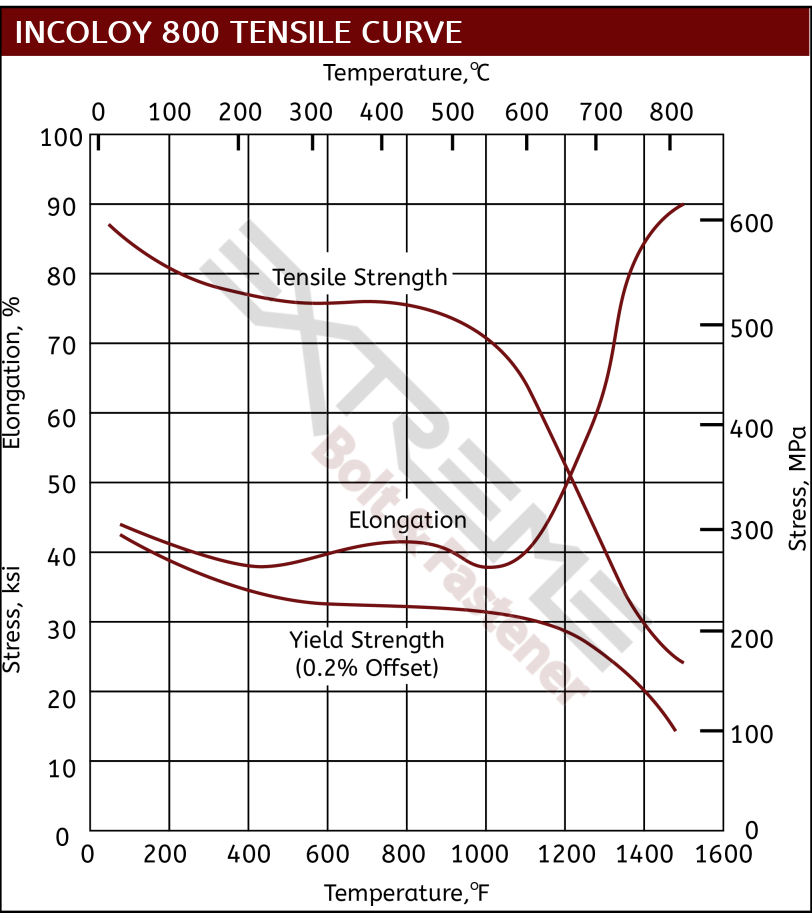
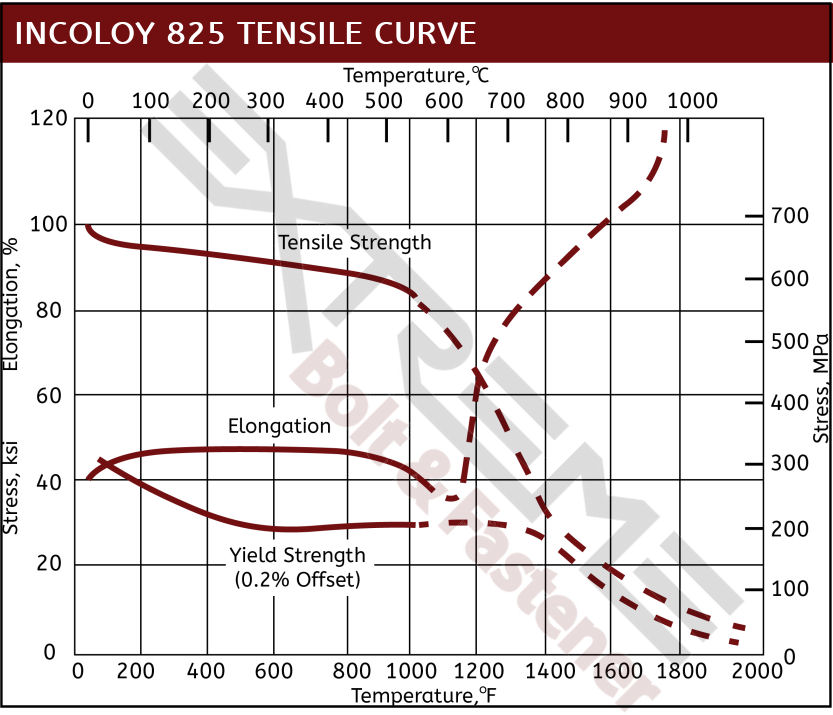
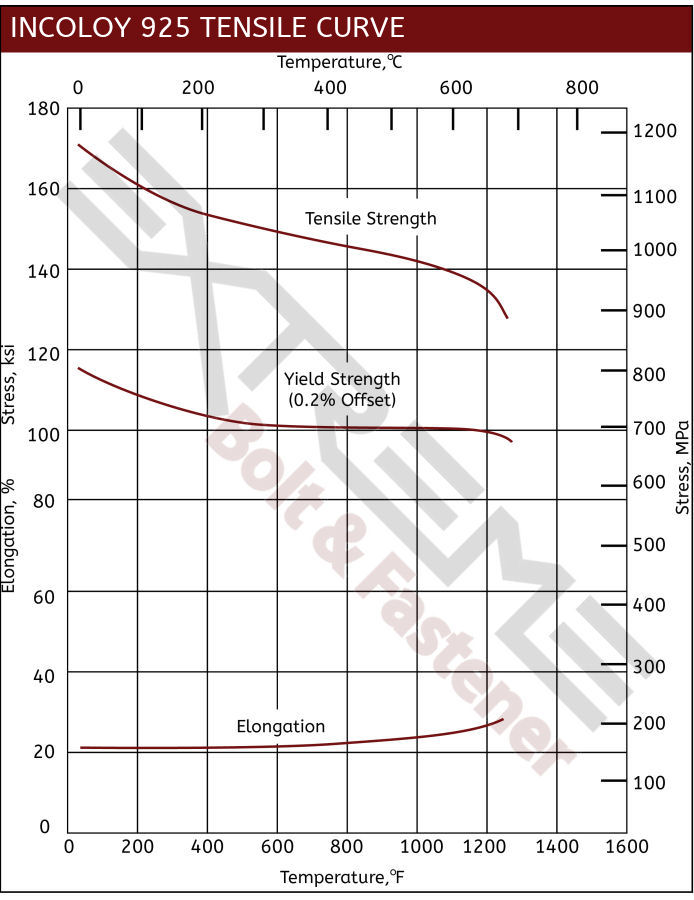

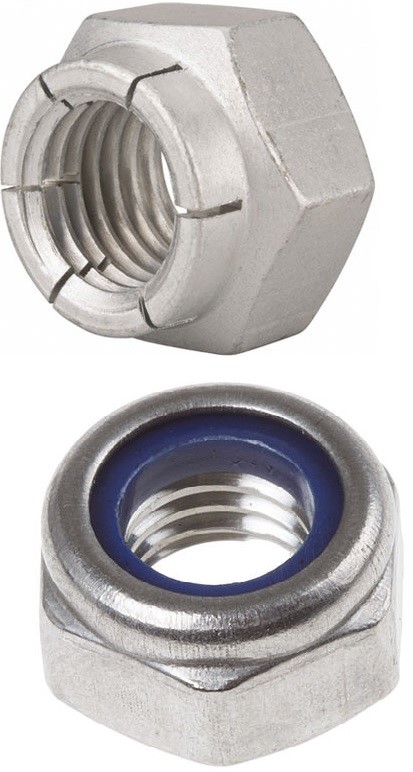 Good high temperature
Good high temperature 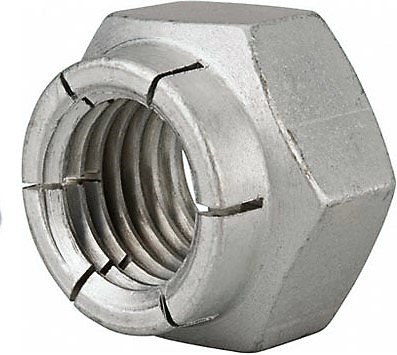
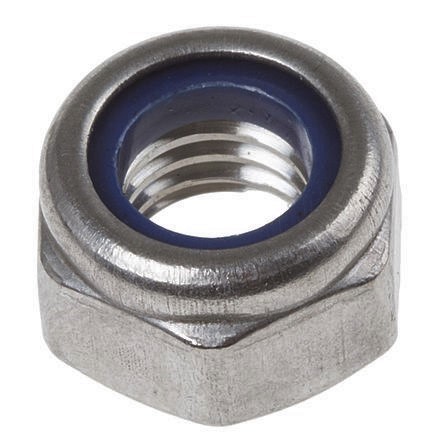 Polymer/Nylon Insert Lock Nut
Polymer/Nylon Insert Lock Nut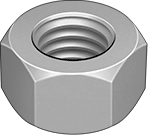 Good high temperature
Good high temperature  Good high temperature
Good high temperature